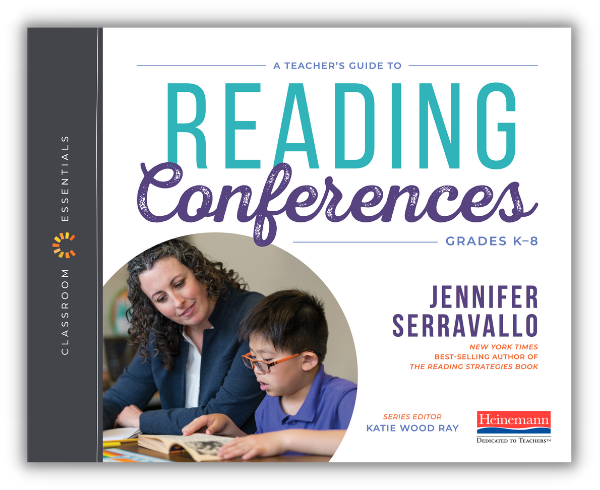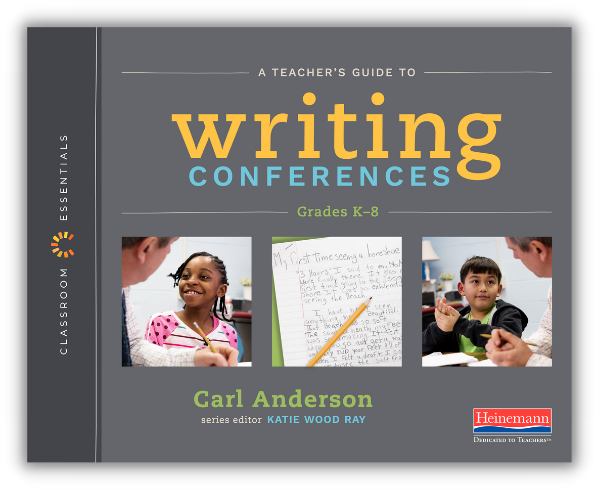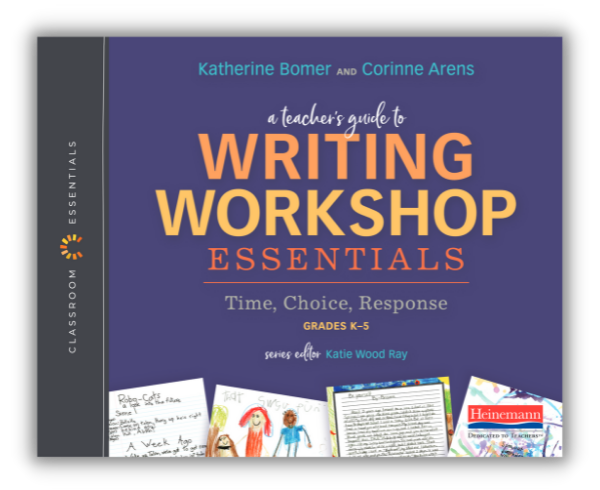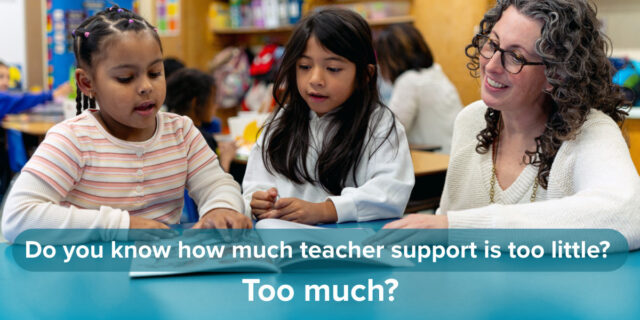
Multitasking is a myth. Allow yourself the time to focus on one essential teaching practice at a time with a Classroom Essentials book.
The Classroom Essentials Series was created to provide pre-service and veteran teachers alike with a fresh look at foundational, student-centered practices.
Each book in the series focuses on one essential practice, along with all the information you need to get started trying it – or refining it – in your own classroom right away.
With highly visual designs, classroom videos, online resources, teacher tips and more, Classroom Essentials books offer a uniquely engaging and contemporary reading experience for today’s busy teachers. Browse the titles in this series below or visit Heinemann.com.

A Teacher's Guide to Writing Workshop Minilessons
By Lisa Eickholdt and Patricia Vitale-Reilly
Grade Level: Kindergarten - 8th
Lisa Eickholdt and Patricia Vitale-Reilly explain the four-part structure of minilessons and share methodologies and tools, including charts, visuals, and materials that you can use to make your minilessons efficient and engaging for all students. With tips on inclusive practices, how to deliver minilessons in different instructional settings, and assessment, you’ll have everything you need to get started with writing workshop minilessons.

A Teacher's Guide to Reading Conferences
By Jennifer Serravallo, Edited by Katie Wood Ray
Grade Level: Kindergarten - 8th
Jen presents conferences for six specific instructional situations: assessing, goal-setting, strategy lessons, and more. A rich design, replete with infographics and special features, guides you quickly from learning to teaching.
 A Teacher's Guide to Writing Conferences
A Teacher's Guide to Writing Conferences
By Carl Anderson and Edited by Katie Wood Ray
Grade Level: Kindergarten - 8th
Helping students become better writers is what writing conferences are all about.In A Teacher’s Guide to Writing Conferences, Carl Anderson explains the underlying principles and reasons for conferring with students, and how to make writing conferences a part of your daily routine. With clear and accessible language, Carl guides you through the three main parts of a writing conference, and shows you the teaching moves and intentional language that can be used in each one.

A Teacher’s Guide to Mentor Texts, 6-12
By Allison Marchetti and Rebekah O'Dell
Grade Level: 6th - 12th
In this foundational guide, you’ll learn the what, why, and how of teaching with mentor texts in small ways as well as large—and discover the power of mentor texts to serve as “writing teachers” alongside you. Allison and Rebekah provide a multitude of annotated examples from professional writers, alongside student samples, to illustrate how mentor texts can teach specific writing skills. Online resources, planning tools, and videos for both teachers and students make A Teacher’s Guide to Mentor Texts an instant companion to your lesson plan book.
 A Teacher's Guide to Getting Started with Beginning Writers
A Teacher's Guide to Getting Started with Beginning Writers
By Katie Wood Ray and Lisa B. Cleaveland
Grade Level: Kindergarten - 2nd
This book shares ideas, information, strategies, and tips to show you step-by-step how you can launch primary writing workshop with beginning writers. If you’re a new teacher or new to writing workshop, A Teacher’s Guide to Getting Started with Beginning Writers will show you in clear and simple terms what to do to establish a routine for writing in your classroom, offering you vision, insight, and practical support. If you’re an experienced workshop teacher, Katie and Lisa will help you imagine new possibilities.

A Teacher's Guide to Writing Workshop Essentials: Time, Choice, Response
By Katherine Bomer and Corinne Arens, Edited by Katie Wood Ray.
Grade Level: Kindergarten - 5th
In this foundational guide, Katherine Bomer and Corinne Arens describe the elegant simplicity of a Writing Workshop focused on just three essentials—time, choice, and response. Based on the research-based belief that children learn to write best when we provide a predictable, daily structure for writing, Katherine and Corinne introduce teachers to the rituals and routines of writing workshop and suggest ways to take small, incremental steps toward implementing them.

A Teacher’s Guide to Vocabulary Development Across the Day
By Tanya S. Wright, Edited by Katie Wood Ray
Grade Level: Kindergarten - 3rd
You probably know that having young children memorize new words or relegating vocabulary instruction to one time of day is not the way to go, but you may not know what else to do to support students’ vocabulary development. In this guide, Tanya Wright shows you how to make word learning more meaningful and engaging as you incorporate teaching about words across the day.


